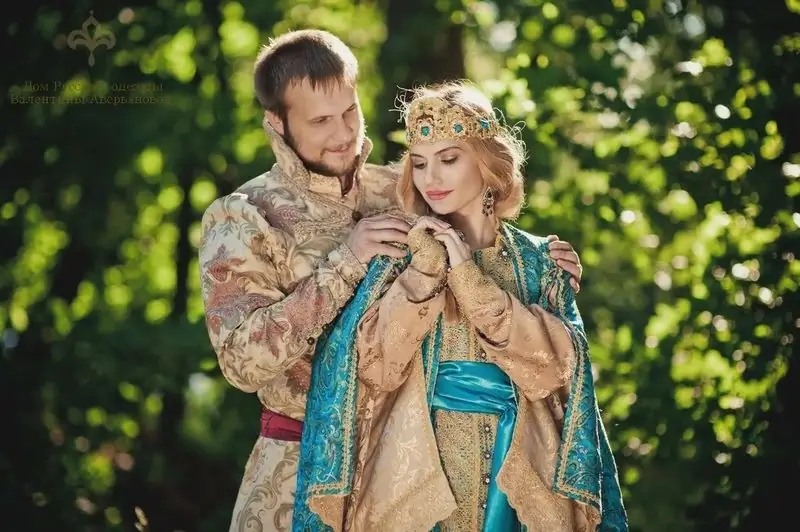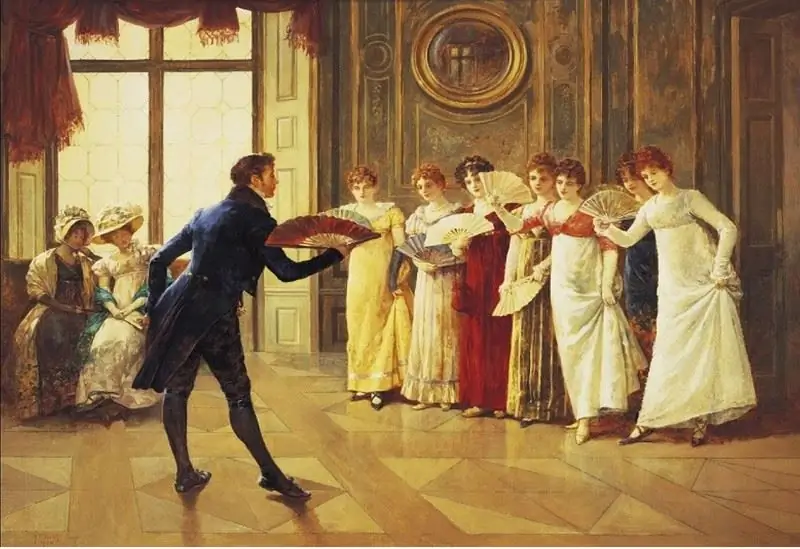
Table of contents:
- 10 glorious places in Russia with a funny name
- Bolshoy Sodom village, Saratov region
- Musorka village, Samara region
- Tupitsy village, Pskov region
- The village of Boduny, Smolensk region
- The village of Prolei-Kasha, Tatarstan
- Rzhat River, Tver Region
- Mars village, Moscow region
- Chuvaki village, Perm region
- Village Zamogilye, Pskov region
- Snovo-Zdoro village, Ryazan region
- Author Bailey Albertson [email protected].
- Public 2023-12-17 12:53.
- Last modified 2025-01-23 12:41.
10 glorious places in Russia with a funny name

The variety of names of settlements often makes you think about their origin, and sometimes laugh heartily. But they can contain both historical facts and features of people's behavior. Here are some of these places.
Bolshoy Sodom village, Saratov region

The expression "sodom and gomorrah" is known to many as a characteristic of chaos, sinful behavior, lawlessness, and came to us from the names of the biblical cities that were destroyed by God for the vices and atrocities of their inhabitants.
The village of Bolshoy Sodom of the Saratov Region has been known since 1789 and was originally inhabited mainly by representatives of the Volga pagan peoples, whom the Orthodox Church in the 18th century considered adherents of polyandry, levirate (the duty of a widow to marry the brother of her deceased husband) and daughter-in-law (intimate relations of the head of the family with their wives) sons), calling such family foundations sodomite.
This is how religious contradictions were reflected in the unusual name of the village, but modern local residents are proud of it and defend against attempts to rename it.
Musorka village, Samara region

This settlement was founded on the Musorka river of the same name by Russian peasants-settlers from Arzamas in the early 18th century, when the settlement of the lands continued after the Kazan campaigns of Ivan the Terrible.
The name is of Finno-Ugric origin and consists of two words: mu (land) and sor (shallow steppe lake). The Musoryans took part in many historical events of our country: they supported the popular uprising of Yemelyan Pugachev, joined the people's militia in the war with Napoleon, fought in the First World War, the Civil and the Great Patriotic War.
In peacetime, local residents were engaged in agriculture.
Tupitsy village, Pskov region

In the Pskov region, there are two whole villages with such a funny name, but why they were so named is unknown. The word "dumb" has ancient Slavic roots and in modern language means not only "insufficiently honed, not ending in an acute angle", but also "inconspicuous, unsharp".
But the word "stupid" in addition to "fool, blockhead" also has the meaning of "heavy ax for chopping meat." One can only guess what the inhabitants of the glorious Pskov land meant when they gave the settlement such a name.
Both villages are quiet and small in number, but the road sign "Tupitsa" is very popular with those passing by - it is impossible to deny yourself the desire to stop and take funny photos against its background.
The village of Boduny, Smolensk region

Residents of a small village in the Smolensk region are even proud of its sonorous name, because it often falls into the annual list of the funniest names of Russian settlements.
Why rename when you can laugh with the whole country, presenting your ancestors as either cocky bulls, or lovers of merry feasts.
The village of Prolei-Kasha, Tatarstan

This village is larger than the two previous ones, the Chuvash have lived in it since 1611, located in Tataria on the Kilna River near the Tetyushsky and Shchuchye mountains. Different versions of the origin of the name are interesting.
One of them points to the Finno-Ugric origin: from the Mordovian language, “spit lei obliquely” means the question “where is the main river”, and, indeed, the village is located not far from the Volga. According to another version, local men spilled a cauldron of porridge, frightened by visiting land surveyors from a neighboring landowner demanding large bribes.
Rzhat River, Tver Region

Such a name will amuse anyone, but few have heard it. But the river is rather big, 51 km long, although narrow - up to 15 m wide.
It is loved by fishermen for its bleak, perch and roach. It is one of the tributaries of the Shosha River, among which there are also the Zhabnya and Zhidokhovka rivers.
Mars village, Moscow region

The village was formed on the site of the former estate of a botanist professor who was engaged in the cultivation of exotic plants. It would seem like the planet Mars can be connected with the Moscow region, but there is an opinion of local historians that in the assignment of such a name in 1920 to a village near the city of Ruza.
This was due to the dreams of Soviet people about space in the wake of the popularity of Tsiolkovsky's development of aircraft. There is logic in this - the “red commune” is striving for the “red planet”.
Another reason for choosing the name Mars may be the soil of this area, reddish, high in iron, clayey, with bumps like craters.
Chuvaki village, Perm region

It was founded in Prikamye (11 km from Perm) in 1671 and, according to legend, it is named after a local resident of the Tatar Chuvak. The main attraction of the village is the nearby archaeological find - the site of an ancient man of the Neolithic era.
In 2018, the Dudes became famous by winning the competition for the funniest geographical name, bypassing the village of Moshonki and the village of Varvarina Gaika.
Village Zamogilye, Pskov region

It is located half a kilometer from Lake Peipsi near the 11-13th century burial mound, which once contained the remains of the Livonian knights, therefore it has such a name. And no matter how many local authorities tried to change it, for example, to Luch or Partizan, the new names did not take root.
On the territory of the village there are stone stables for keeping post horses, left over from the pre-revolutionary post station.
Snovo-Zdoro village, Ryazan region

Local historians explain such a positive name by the fact that in ancient times it was the only settlement among a continuous dense forest, in which locals often wandered, did not find a way out and, returning, exclaimed: "Those are great again!"
According to another version, many from this village regularly went to work in the city and, often meeting on the road, greeted each other with these words.
Recommended:
Funny Names Of Children Of Stars And The Most Unusual

The funniest and ridiculous names that stars give to their children
Stars Who Disgraced Themselves With The Phonogram - The Names Of Russian And Foreign Performers

Russian and foreign stars who disgraced themselves, speaking to the soundtrack. Photo and video
The Most Beautiful Russian Names According To Foreigners: Top 10

Top 10 Russian names that are popular abroad and are considered beautiful by foreigners
What Russian Names Could Only Aristocrats Have

What names could Russian aristocrats have? As the children for the lower class were called, the farmers. Origin for different families
What Beautiful Russian Names Hardly Anyone Wants To Call A Child

What old Russian names are beautiful, but no one calls their children them
